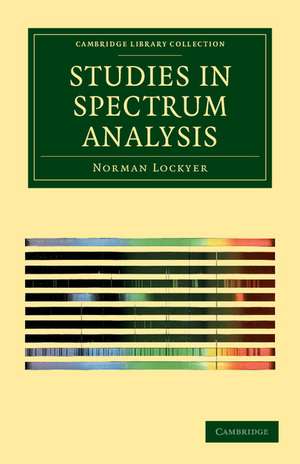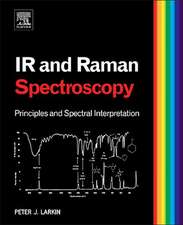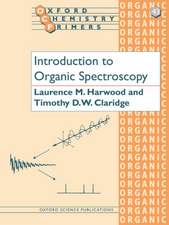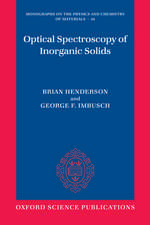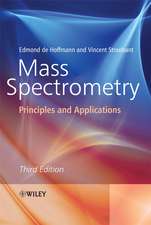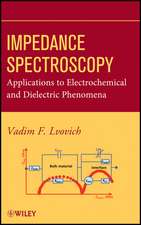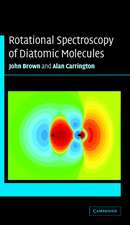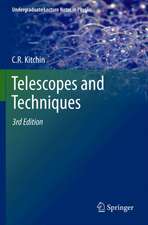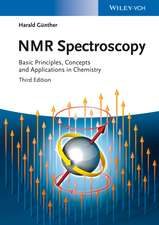Studies in Spectrum Analysis: Cambridge Library Collection - Physical Sciences
Autor Norman Lockyeren Limba Engleză Paperback – 2 noi 2011
Din seria Cambridge Library Collection - Physical Sciences
- 23%
 Preț: 816.81 lei
Preț: 816.81 lei - 11%
 Preț: 557.54 lei
Preț: 557.54 lei - 14%
 Preț: 595.04 lei
Preț: 595.04 lei - 23%
 Preț: 2069.90 lei
Preț: 2069.90 lei - 23%
 Preț: 1111.08 lei
Preț: 1111.08 lei -
 Preț: 372.11 lei
Preț: 372.11 lei -
 Preț: 456.76 lei
Preț: 456.76 lei -
 Preț: 325.63 lei
Preț: 325.63 lei -
 Preț: 413.52 lei
Preț: 413.52 lei -
 Preț: 499.55 lei
Preț: 499.55 lei -
 Preț: 457.55 lei
Preț: 457.55 lei -
 Preț: 434.50 lei
Preț: 434.50 lei -
 Preț: 413.52 lei
Preț: 413.52 lei -
 Preț: 322.97 lei
Preț: 322.97 lei -
 Preț: 250.47 lei
Preț: 250.47 lei -
 Preț: 322.97 lei
Preț: 322.97 lei -
 Preț: 455.64 lei
Preț: 455.64 lei -
 Preț: 410.49 lei
Preț: 410.49 lei - 19%
 Preț: 452.09 lei
Preț: 452.09 lei -
 Preț: 510.47 lei
Preț: 510.47 lei -
 Preț: 362.03 lei
Preț: 362.03 lei -
 Preț: 396.00 lei
Preț: 396.00 lei - 19%
 Preț: 445.82 lei
Preț: 445.82 lei - 19%
 Preț: 446.44 lei
Preț: 446.44 lei -
 Preț: 331.37 lei
Preț: 331.37 lei -
 Preț: 276.43 lei
Preț: 276.43 lei -
 Preț: 367.85 lei
Preț: 367.85 lei -
 Preț: 456.21 lei
Preț: 456.21 lei - 19%
 Preț: 488.43 lei
Preț: 488.43 lei -
 Preț: 412.73 lei
Preț: 412.73 lei - 19%
 Preț: 489.77 lei
Preț: 489.77 lei -
 Preț: 247.81 lei
Preț: 247.81 lei -
 Preț: 354.31 lei
Preț: 354.31 lei -
 Preț: 241.73 lei
Preț: 241.73 lei - 19%
 Preț: 523.31 lei
Preț: 523.31 lei -
 Preț: 411.08 lei
Preț: 411.08 lei -
 Preț: 511.06 lei
Preț: 511.06 lei - 19%
 Preț: 446.73 lei
Preț: 446.73 lei -
 Preț: 461.87 lei
Preț: 461.87 lei -
 Preț: 345.27 lei
Preț: 345.27 lei -
 Preț: 412.36 lei
Preț: 412.36 lei
Preț: 322.97 lei
Nou
Puncte Express: 484
Preț estimativ în valută:
61.81€ • 64.20$ • 51.34£
61.81€ • 64.20$ • 51.34£
Carte tipărită la comandă
Livrare economică 03-17 februarie 25
Preluare comenzi: 021 569.72.76
Specificații
ISBN-13: 9781108037716
ISBN-10: 1108037712
Pagini: 294
Ilustrații: 52 b/w illus. 7 colour illus.
Dimensiuni: 140 x 216 x 17 mm
Greutate: 0.38 kg
Editura: Cambridge University Press
Colecția Cambridge University Press
Seria Cambridge Library Collection - Physical Sciences
Locul publicării:Cambridge, United Kingdom
ISBN-10: 1108037712
Pagini: 294
Ilustrații: 52 b/w illus. 7 colour illus.
Dimensiuni: 140 x 216 x 17 mm
Greutate: 0.38 kg
Editura: Cambridge University Press
Colecția Cambridge University Press
Seria Cambridge Library Collection - Physical Sciences
Locul publicării:Cambridge, United Kingdom
Cuprins
1. Wave; 2. Methods of demonstration and laboratory work; 3. On spectrum photography; 4. Atoms and molecules spectroscopically considered; 5. Long and short lines; 6. On the spectra of salts; 7. On dissociation; 8. An attempt at quantitative spectrum analysis; 9. On the coincidences of spectral lines; 10. The elements present in the sun; Index.
Descriere
A guide to spectroscopy from 1878, by one of the most influential astronomers of his time.
